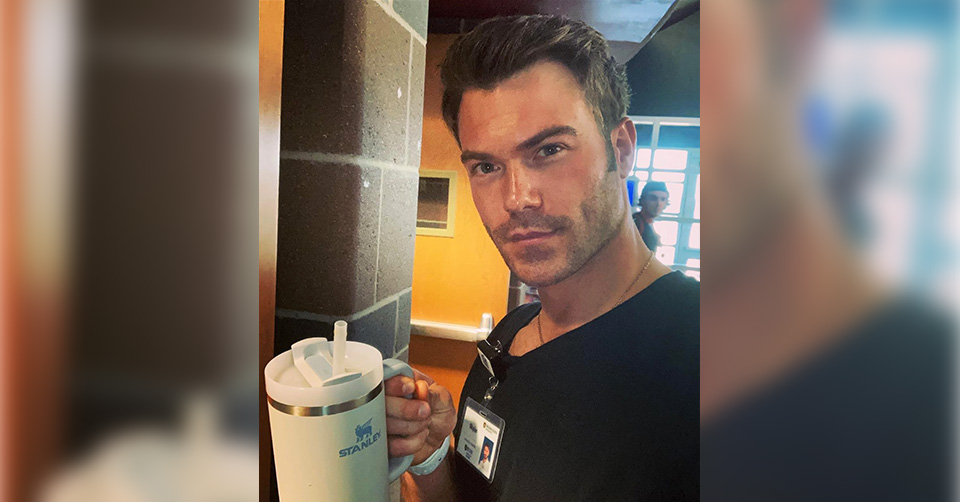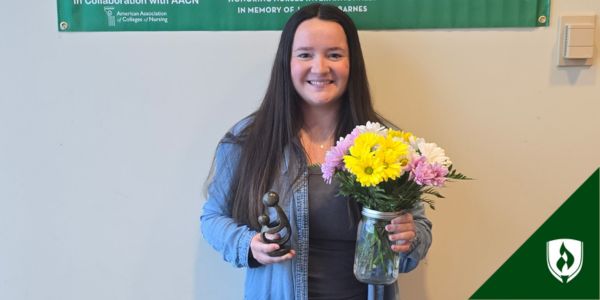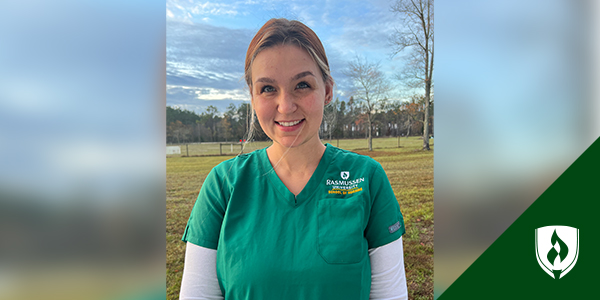
Skylar Hill is the kind of person who likes to mix things up and try something new. “I’ve always been someone who doesn’t like to commit to one single thing,” Hill says. “I like variability.” After high school, he served in the Air Force for three years and then felt ready for a change.
But Hill didn’t want to pursue just any type of job. He wanted to help people as directly as possible, so he set his sights on the healthcare industry.
The journey to nursing
Hill felt the pull to be part of a team where he could make a difference every day at work. To this end, he enrolled in radiology school and spent some time working as a radiology technician. “Radiology didn’t fit me quite right,” Hill observes. “But I fell in love with the hospital, working with doctors and helping people.”
Hill explored some other career paths, but he couldn’t shake the feeling that healthcare was his place to make an impact. “After many years and two degrees later, I still felt the need to be back in the hospital; that is why I chose nursing.”
Taking an accelerated path to a nursing degree
Nursing is a profession with tons of specialization options, diverse roles and various work environments. All these options really appealed to Hill.
He says, “I searched around to a few different colleges, saw Rasmussen University ads and attended one of their seminars about the university.” When Hill learned about the accelerated BSN program for students who hold a degree in another field, his interest was piqued. He liked that he could earn his degree in a shorter period of time with the accelerated path, and that the physical Kansas City/Overland Park campus location was close by.
Getting a taste of what dedicated nursing teams can be
Camaraderie is really important to Hill, and he started to feel it with the nursing cohort in his program, especially when clinicals started. “You get to work with real patients, instead of just running simulations together,” he says.
During this time, he saw his fellow students push themselves and advocate for the best possible patient care—showcasing the passion for helping others that Hill also feels.
Seeing that so many of the students felt the same way was really rewarding for Hill. “All the people around me will stand up for their patients.”
Advice for thriving in nursing school
For many students, nursing school is difficult. There’s so much to learn, and especially in an accelerated program, you need to learn it pretty fast.
Hill explains that he’s always had a knack for finding the resources he needs. “In nursing school, you do a lot of your own research, so you need a plan for where to look.”
Hill took advantage of the Rasmussen library for nursing journals and other nursing-specific texts. He also used Grammarly, an editing tool Rasmussen shares with its students. He observes, “It does help with all the writing we do.”
Rasmussen’s support systems are another resource Hill recommends involving in your academic journey through nursing school. “I found strength speaking with the professionals and the faculty there, talking about their experiences,” Hill says. “And you need to rely on each other for support. You need to push through setbacks.”
Self-care practices like exercise, meditation, nature trips, spending time with animals and listening to music have all been sources of resilience for Hill. “Spending time with loved ones also helps,” he says.
Seeking to heal children in the future
Graduation is on the horizon for Hill this spring. After that, he hopes to start working anywhere he can make a difference as a nurse. “Eventually I’d like to be in pediatrics,” he says. “My heart and soul is really with the kids.”
Hill envisions opening his own practice someday as a nurse-practitioner and being a consistent source of love and affirmation for kids with special needs or behavioral issues. He observes, “Emotional and spiritual needs are often overlooked. I want to incorporate love and understanding into my work, letting them know they are loved and accepted for who they are.”
Whether you are considering nursing school or any other education path, Hill encourages students to hang on and push through setbacks. “Don’t get down on yourself after a failure,” Hill says. “If you let it affect your mental state, anxiety goes up and it gets much harder. Look at each failure as an opportunity for growth and push forward.”





